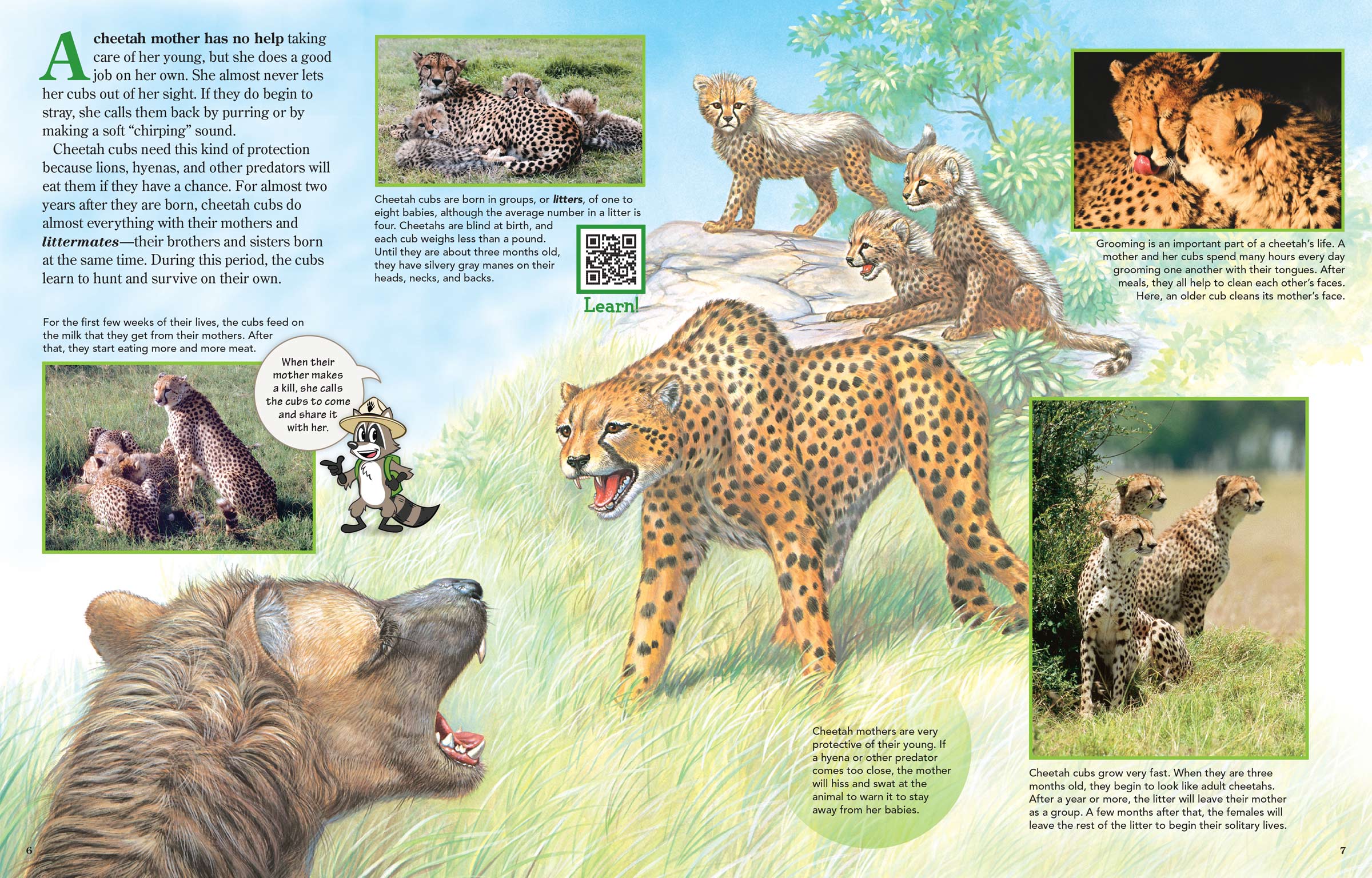
Cheetah Mothers Do a Good Job
ByA cheetah mother has no help taking care of her young, but she does a good job on her own. She almost never lets her cubs out of her sight. If they do begin to stray, she calls them back by purring or by making a soft “chirping” sound.
Cheetah cubs need this kind of protection because lions, hyenas, and other predators will eat them if they have a chance. For almost two years after they are born, cheetah cubs do almost everything with their mothers and littermates—their brothers and sisters born at the same time. During this period, the cubs learn to hunt and survive on their own.
- Cheetah cubs are born in groups, or litters, of one to eight babies, although the average number in a litter is four. Cheetahs are blind at birth, and each cub weighs less than a pound. Until they are about three months old, they have silvery gray manes on their heads, necks, and backs.

For the first few weeks of their lives, the cubs feed on the milk that they get from their mothers. After that, they start eating more and more meat. When their mother makes a kill, she calls the cubs to come and share it with her.
Grooming is an important part of a cheetah’s life. A mother and her cubs spend many hours every day grooming one another with their tongues. After meals, they all help to clean each other’s faces. Here, an older cub cleans its mother’s face.
Cheetah mothers are very protective of their young. If a hyena or other predator comes too close, the mother will hiss and swat at the animal to warn it to stay away from her babies.
Cheetah cubs grow very fast. When they are three months old, they begin to look like adult cheetahs. After a year or more, the litter will leave their mother as a group. A few months after that, the females will leave the rest of the litter to begin their solitary lives.

